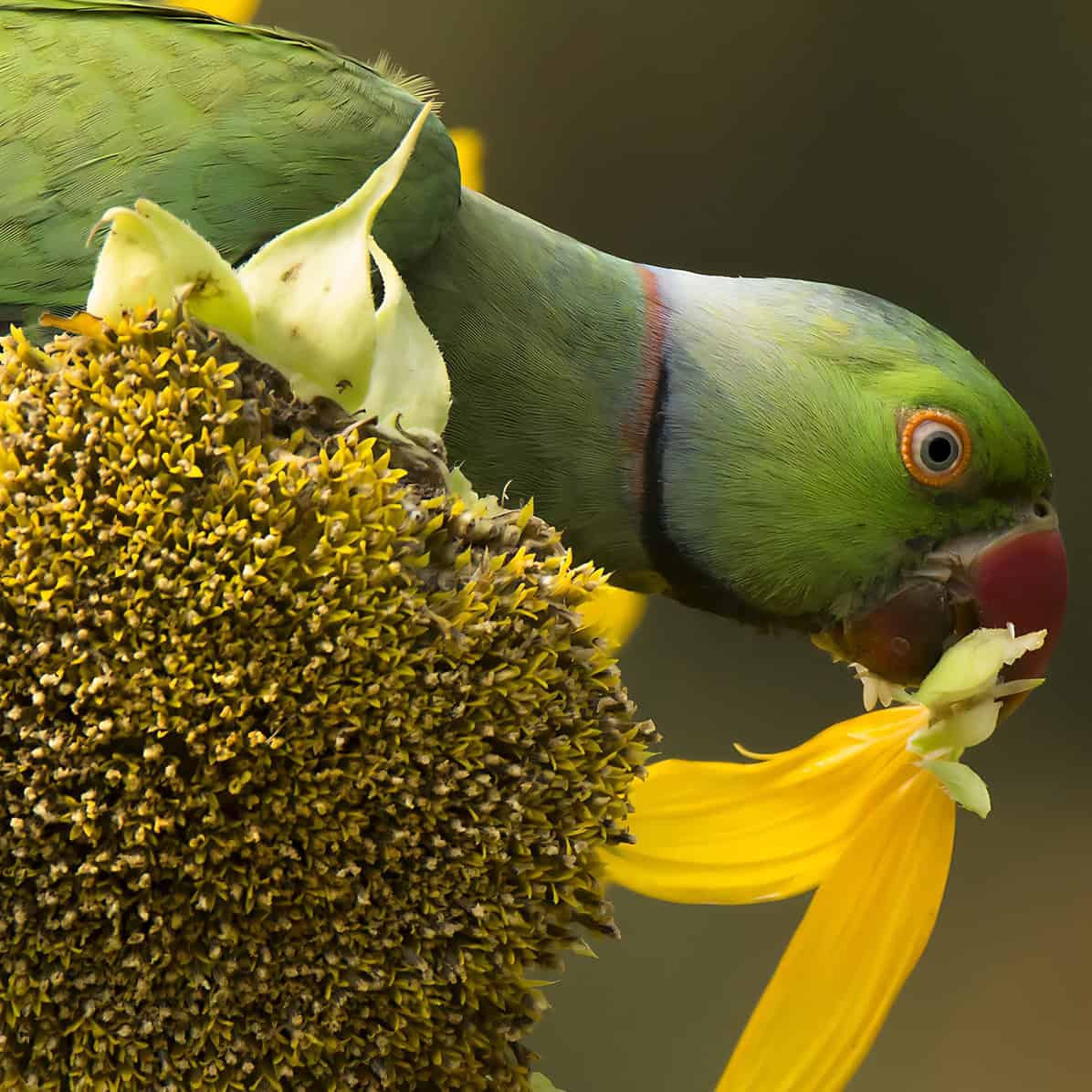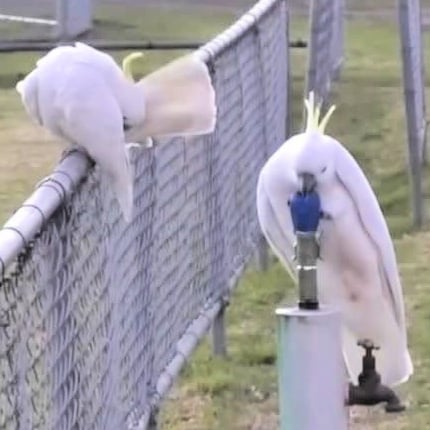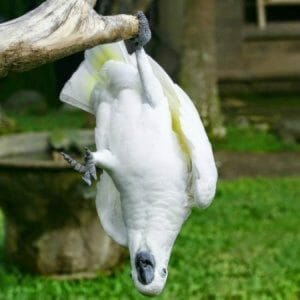Last Updated on by Mitch Rezman
**Introduction**
Pet birds love treats as much as any other pet, but choosing the right treats is essential for their health and happiness.
While treats can be great for bonding, training, and providing enrichment, they should be nutritious and given in moderation.
The wrong treats can lead to weight gain, nutritional imbalances, and even toxicity. In this guide, we’ll explore safe, healthy treats for pet birds, highlight treats to avoid, and offer tips on using treats effectively in training and enrichment.
1. Why Treats Matter for Pet Birds
Treats play an essential role in a bird’s life beyond just being tasty snacks. Here’s why treats are valuable for pet birds:
- Bonding: Hand-feeding treats can strengthen your bond with your bird, helping to build trust and affection.
- Training: Small treats can be highly effective in positive reinforcement training, encouraging desired behaviors.
- Mental Enrichment: Birds are intelligent creatures that need stimulation. Offering treats in interactive ways can keep them mentally engaged.
- Dietary Supplementation: Some treats, like certain fruits and vegetables, can provide extra vitamins and minerals to round out a bird’s diet.
However, it’s important to remember that treats should never replace a balanced diet.
Treats should only make up about 5-10% of a bird’s daily intake to ensure they’re not consuming too many calories or sugars.
2. Healthy Treat Options for Pet Birds
There are many safe, healthy treats that birds enjoy, from nuts and seeds to fruits and vegetables. Here are some popular options that birds find both tasty and nutritious.
- Nuts and Seeds
Almonds: Raw, unsalted almonds are high in healthy fats and fiber, making them a nutritious treat for larger birds like parrots. - Walnuts: Walnuts are rich in omega-3 fatty acids, which can benefit feather health.
- Pumpkin Seeds: These are low in fat and high in nutrients like zinc and magnesium. They’re a great option for small to medium-sized birds.
- Sunflower Seeds: Birds love sunflower seeds, but they are high in fat. Limit these to an occasional treat, especially for smaller birds.
Note: Always offer nuts and seeds unsalted, as added salt can be harmful to birds.
Moderation is key because nuts and seeds are calorie-dense, and too many can lead to obesity.
Fresh Fruits
- Apples: High in fiber and vitamin C, apples are a great treat, but remember to remove the seeds, as they contain cyanide.
- Berries: Blueberries, strawberries, and raspberries are low in sugar and packed with antioxidants, which support immune health.
- Mango and Papaya: These tropical fruits are rich in vitamin A, supporting eye and immune health.
- Melons: Watermelon, cantaloupe, and honeydew are hydrating and low in calories, making them ideal as refreshing treats.
Fruits are naturally sweet, so limit their quantity. Generally, a small piece a day is plenty for most pet birds.
Vegetables
- Carrots: Birds love the crunch of carrots, which are rich in beta-carotene and support eye health.
- Bell Peppers: All colors of bell peppers are safe, and they provide vitamin C. Many birds enjoy the seeds inside the peppers too.
- Broccoli: A source of fiber, calcium, and vitamins, broccoli can be served raw or lightly steamed.
- Spinach and Kale: These leafy greens are packed with nutrients, but offer them in moderation as they contain oxalates, which can interfere with calcium absorption.
Vegetables are a better daily treat option than fruits, as they’re lower in sugar and provide essential nutrients without excess calories.
Homemade Treats: Fun DIY Ideas
Creating homemade treats for your bird can be a fun and rewarding way to provide variety in their diet. Here are a few easy ideas to try:
- Fruit and Veggie Skewers: Thread small pieces of apple, carrot, bell pepper, and broccoli onto a bird-safe skewer or hanging toy. Birds love foraging, and the skewer makes treat time interactive.
- Birdie Muffins: Mix oats, finely chopped vegetables, and a touch of bird-safe nut butter. Bake mini muffins and serve them in small pieces. Be mindful to avoid added sugar or salt.
- Seed Balls: Combine bird-safe seeds, shredded carrot, and a small amount of natural honey. Roll into small balls and refrigerate. Serve these occasionally as a special treat.
These homemade treats provide natural flavors and textures, stimulating your bird’s senses while being nutritious.
Treats to Avoid for Pet Birds
While it’s tempting to share your favorite snacks with your pet, many human foods are unsafe for birds. Here are some common foods to avoid:
- Chocolate: Contains theobromine and caffeine, both toxic to birds, and can cause serious health issues or even death.
- Avocado: Contains persin, a compound toxic to birds that can lead to heart damage and respiratory distress.
- Salty Foods: Foods high in salt can lead to kidney damage in birds. Avoid chips, pretzels, and salted nuts.
- Caffeine: Beverages like coffee, tea, and soda can overstimulate a bird’s heart and nervous system, leading to potential heart attacks.
- Alcohol: Even small amounts are dangerous and can lead to poisoning and respiratory distress.
- Dairy Products: Birds lack the enzymes to digest lactose, so milk, cheese, and other dairy products should be avoided.
- Garlic and Onion: These can cause digestive problems and lead to hemolytic anemia, which is deadly for birds.
Knowing which foods to avoid is just as important as choosing the right treats. When in doubt, always check whether a food is safe before offering it to your bird.
5. Using Treats for Training and Enrichment
Treats are invaluable in training and enrichment, helping to keep birds mentally stimulated and engaged. Here are some ideas for using treats effectively:
- Positive Reinforcement Training: Offer a small treat each time your bird performs a desired behavior, like stepping up or following a command. This strengthens the association between the action and reward.
- Foraging Toys: Place small treats inside foraging toys or under paper or small objects to encourage your bird’s natural foraging instincts.
- Interactive Play: Use treats as part of playtime by hiding them around the cage or placing them in shreddable toys. This keeps your bird physically active and mentally stimulated.
Training sessions should be kept short, and treats used sparingly to maintain your bird’s interest without overfeeding.
6. Moderation is Key
While treats are enjoyable and beneficial, it’s crucial to remember that they’re supplementary to a balanced diet. Too many treats, especially high-fat or sugary ones, can lead to obesity, liver disease, and other health problems in birds.
- General Rule: Treats should make up no more than 5-10% of your bird’s daily intake.
- Monitor Weight and Behavior: Keep an eye on your bird’s weight and behavior. If you notice weight gain or reduced interest in their regular food, adjust the treat portions.
Balancing treat portions ensures that your bird enjoys both their daily meals and occasional snacks without compromising health.
Conclusion
Healthy treats are an excellent way to show love, bond, and keep your pet bird happy and mentally stimulated. With the right selection of nutritious treats, you can provide variety, enrichment, and added nutrition in their diet.
Just remember to choose safe, bird-friendly options, avoid harmful foods, and keep treat portions small. A well-balanced diet with occasional treats will help your bird thrive for years to come.
Written by Mitch Rezman and the Windy City Parrot Content Team.
Author Profile
Latest entries
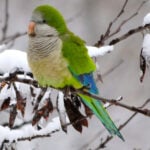 The Traveling BirdJune 26, 2025Can You Name 5 Parrot Species That Are Living Wild in the USA?
The Traveling BirdJune 26, 2025Can You Name 5 Parrot Species That Are Living Wild in the USA?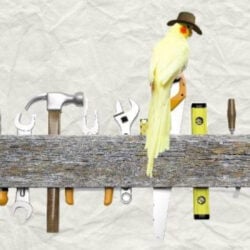 Bird BehaviorJune 26, 2025How is it Parrots Are Problem Solvers Social Animals and Even Use Tools?
Bird BehaviorJune 26, 2025How is it Parrots Are Problem Solvers Social Animals and Even Use Tools?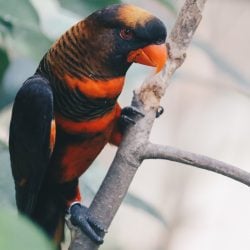 Bird & Parrot AnatomyJune 25, 2025How a Tiny Chemical Modification Makes Parrots Nature’s Living Paintings
Bird & Parrot AnatomyJune 25, 2025How a Tiny Chemical Modification Makes Parrots Nature’s Living Paintings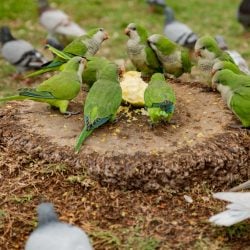 PigeonsJune 20, 2025How Do Parrots Thrive in Cities Outside Their Native Habitats?
PigeonsJune 20, 2025How Do Parrots Thrive in Cities Outside Their Native Habitats?
